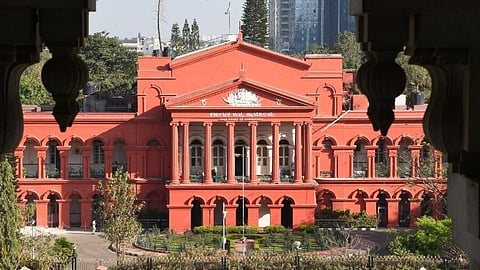

BENGALURU: The Directorate of Enforcement (ED) has filed an appeal before the High Court of Karnataka against the order of a single judge declaring that a search and seizure operation at the residence of Natesha DB, former commissioner of MUDA, in connection with the MUDA site allotment scam, is illegal, unwarranted and abuse of law. It has also challenged the liberty granted by the single judge to Natesha to initiate action under Section 62 of the Prevention of the Money Laundering Act (PMLA) against the ED officials.
Admitting ED’s appeal, a division bench of Chief Justice NV Anjaria and Justice MI Arun recorded the undertaking by senior counsel Dushyanth Dave, representing Natesha, that they will not act upon the liberty granted to them by the single judge against ED officials, during the pendency of the appeal.
Meanwhile, additional solicitors general SV Raju and K Aravind Kamath urged the court to pass an interim order staying the single judge’s order. They argued that all investigations of ED are being halted based on the impugned order passed by the single judge. However, Dave opposed the stay on the grounds that the appeal did not seek interim relief.
The court granted time to ED to file an application for interim relief and adjourned the hearing to April 8.
Meanwhile, Kamath stated that they will file the application before the division bench on Tuesday.
An Enforcement Case Information Report (ECIR) was registered on October 1, 2024, by ED based on an FIR filed by the Lokayukta in connection with the illegal allotment of 14 sites, including commercial plots, to BM Parvathy, wife of Chief Minister Siddaramaiah, by MUDA during Natesha’s tenure as commissioner. On joint director of ED’s direction, the assistant director raided Natesha’s residence under Section 17 of PMLA. During the raid, Natesha’s mobile phone was seized and its data transferred to a hard disk.
The single judge had observed that mere possession of a site that was allegedly illegally allotted to an accused in a criminal case in connection with a scheduled offence does not, by itself, constitute an offence under PMLA unless essential ingredients of the offence as defined under Section 3 of the Act are satisfied.